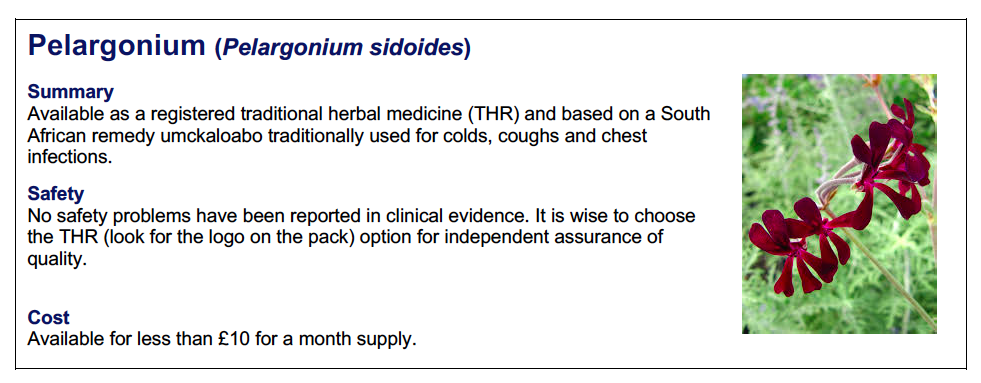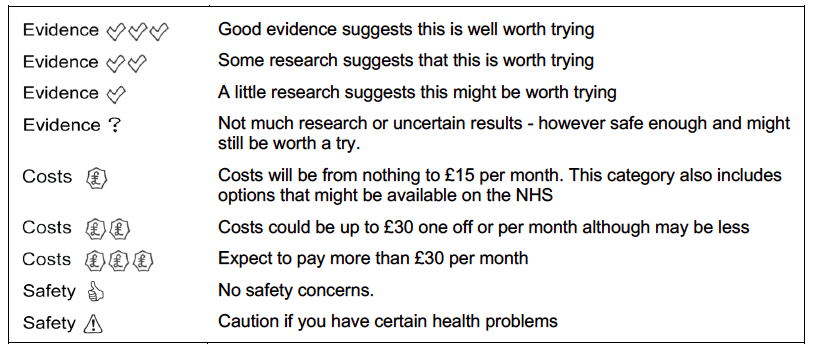Sore throat

What doctors say*
* Official guidelines from NICE.
Should antibiotics be used? >
Only if more than two of the following
- Fever during previous 24 hours
- Pus on tonsils
- Tender and swollen glands on neck
- Absence of cough
- Symptoms severe enough to call out doctor.
Likely duration if untreated >
2-8 days
Conventional self-care advice >
- Consider paracetamol for pain or fever, or if preferred and suitable, ibuprofen
- Drink adequate fluids
- Some evidence that medicated lozenges can help reduce pain in adults
Opportunities for antibiotic alternatives >
If less than two of the NICE criteria above

Note: to help ease sore throat it is worth also considering remedies on the Common cold page.

Pelargonium
> what do these ratings mean?
Systemic reviews of clinical research conclude that there is good quality evidence of the use of pelargonium in acute pharyngitis

Sage
> what do these ratings mean?
Controlled clinical trials of sage spray and proprietary sage products showed efficacy against viral pharyngitis.

Honey
> what do these ratings mean?
Only a little published scientific evidence, though this supports everyday experience of relief of symptoms. See tips for using propolis below.
Traditional home remedies worth trying
Propolis, resins and balsams
Remedies containing resins are long-standing remedies for sore throats. Myrrh and frankincense are two biblical examples and resinous extracts of calendula, various balsams (eg balsam of Peru, balsam of Tolu, Balm of Gilead and Canada balsam) and more popularly propolis have all been used into modern times. There is no doubt that resins are antiseptic. The challenge has often been to get them in a form that can be applied as they are insoluble in anything other than high levels of alcohol or other organic solvents. However balsams are already in liquid form and are worth looking out for. It is usually safest and just as effective to use a resin solution as a gargle and then spit out rather than swallow.



